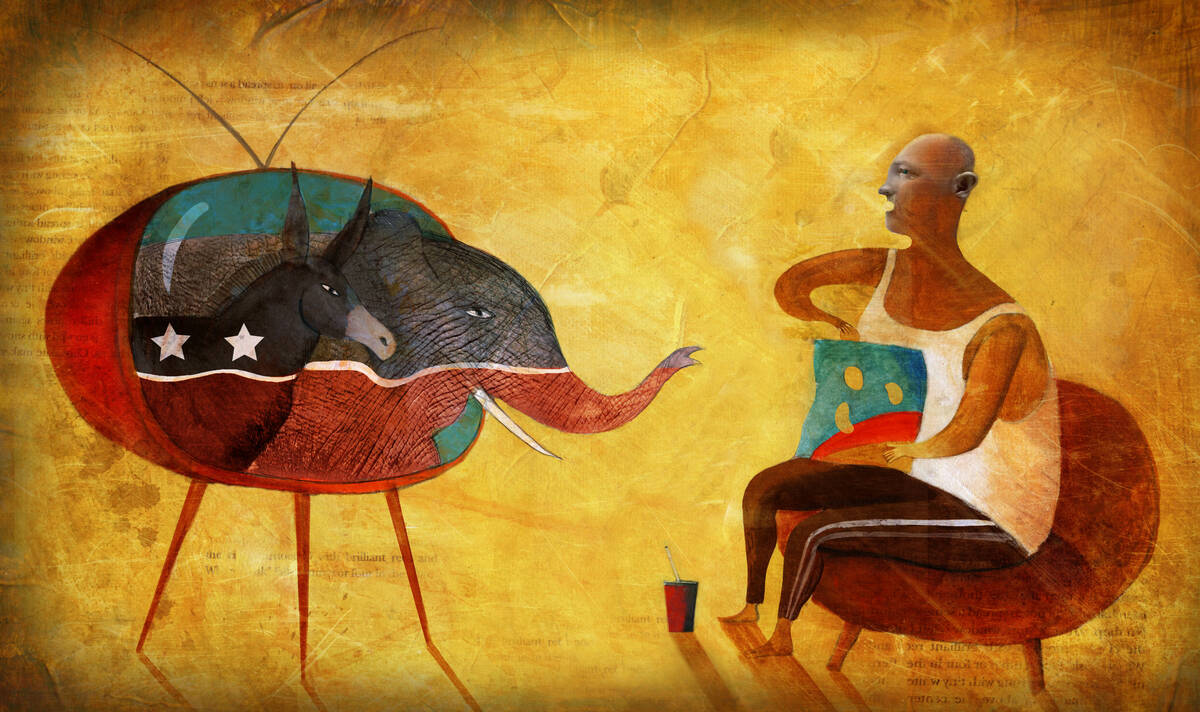
Yevgenia Nayberg
When it comes to persuading voters, the timing of a candidate’s message may be as important as the message itself.
In a series of experiments involving a hypothetical candidate, Angela Y. Lee, a professor of marketing at the Kellogg School of Management, found that temporal proximity to an election influenced how voters received specific kinds of political messages. Abstract notions resonated with voters early in the campaign, but concrete messages became more meaningful as Election Day approached, according to the research.
When told the election was six months away, study participants reacted more favorably to candidate messages about “core values” and “ideals and standards” than to statements about implementing solutions and making “initiatives work.” The opposite was true when subjects were told the election was a week away.
Lee and her colleagues Hakkyun Kim, an assistant professor at Concordia University of Montreal, and Akshay R. Rao, a professor at the University of Minnesota, said President Obama—perhaps unknowingly—successfully deployed this strategy during the 2008 campaign. In the campaigning leading up to the Iowa caucuses, his Democratic rivals, Hillary Clinton and John Edwards, spent a fair amount of time talking about the doughnut hole in Medicare Part D—a concrete issue. Barack Obama, meanwhile, employed soaring—and abstract—rhetoric that invoked themes of “hope” and “change.”
“He was emphasizing abstract themes and capturing the imagination of caucus goers, while his opponents were capturing the attention of the D.C. establishment, who then spent a fair amount of time dissecting and critiquing their various plans to fix health care, get out of Iraq, and what have you,” Rao says.
The study results could help political candidates make better use of the increasingly huge sums they are spending to reach voters. The cost of the 2008 presidential campaign pitting Barack Obama against John McCain exceeded $1 billion, more than double the expense of the 1996 presidential contest between Bill Clinton and Bob Dole.
Marketing and Message
Timing However, the implications of Lee and her colleagues’ research extend beyond political campaigns. Insights from the study, Lee notes, may help consumer goods marketers develop more persuasive messages and may also help public health officials design more effective campaigns against such health threats as obesity and smoking. For example, she says, messages that urge people to lose weight or quit smoking as an immediate goal should provide concrete information on how the objective can be achieved.
In cases where the temporal horizon is mixed—for example, some people are in the market for new cars, others are not—advertising can combine abstract and concrete messages. Consumers will “migrate to the message they actually like and they will focus on that,” Lee explains.
As an alternative, marketers can manipulate consumers’ time horizon through the clever use of imagery and get all their potential customers on the same page. “A lot of times in advertising, we project a scenario. We all have seen commercials of a dad looking at his little girl and thinking that one day she is going to be a lovely bride,” observes Lee. “An ad like this can really bring people to think about a more distant future.”
The study drew on prior research showing that temporal proximity influences the way people think about events. For example, Lee observes, someone traveling to Cancun for a vacation tomorrow is more likely to think about such concrete details as check-in lines and flight delays, whereas if the trip is in three months then he or she is more likely to be thinking about the abstract quality of a relaxing afternoon on the eastern coast of Mexico.
Political Campaign Message Timing Matters
Lee and her colleagues wanted to find out if timing had any influence on the way consumers understood marketing messages. To get at the answer, they decided to look at a political campaign because it has a predictable temporal rhythm that engages all voters in the same way.
In the first experiment, 92 undergraduates were provided with statements from a fictional candidate for U.S. Senate with the androgynous name of Pat Darvell. One statement was abstract and focused on ideals and values; the other statement was concrete and focused on the importance of being “action-oriented.” Each type of statement came in two versions: one saying the campaign would begin in one week, and the other saying the campaign would start in six months. After reading the statements, subjects were asked to rate their attitudes toward the candidate and their assessment of the candidate’s statement.
Lee said participants preferred the candidate and the message that fit with their temporal mind set. Messages that emphasized high-level, goal-oriented abstract themes were more persuasive when the campaign was six months in the future. Messages that emphasized concrete, low-level, action-oriented issues were more convincing when the start of the campaign was at hand.
Because the attitudes of independent voters often determine elections, a second experiment of 106 subjects compared the reactions of experts (party loyalists) to novices (independents). Timing had an effect on novices, but not on experts, who presumably rely on other sources of information when judging a candidate. In addition, Lee says, informed voters are most likely committed to their candidate and therefore not swayed by temporal effects.
Lee cautioned that the research was far from a blueprint for winning elections. The study, she noted, did not look at all the complex factors that come into play during a campaign. “What else do voters rely on? Is it just the campaign? Is it commentary? Is it how other people talk about different candidates? All these things matter,” Lee says. “The campaign itself might not be the most important thing.”
Related reading on Kellogg Insight
First Among Equals? Prime ballot position improves a candidate’s chances of winning office
Voters Love Winners (And So Do Endorsers): How endorsers can gain the upper hand
Predicting Politics: Prediction markets out-predict political pollsters
Kim, Hakkyun, Akshay R. Rao, and Angela Y. Lee. 2009. It’s Time to Vote: The Effect of Matching Message Orientation and Temporal Frame on Political Persuasion. Journal of Consumer Research. 35: 877–889.


